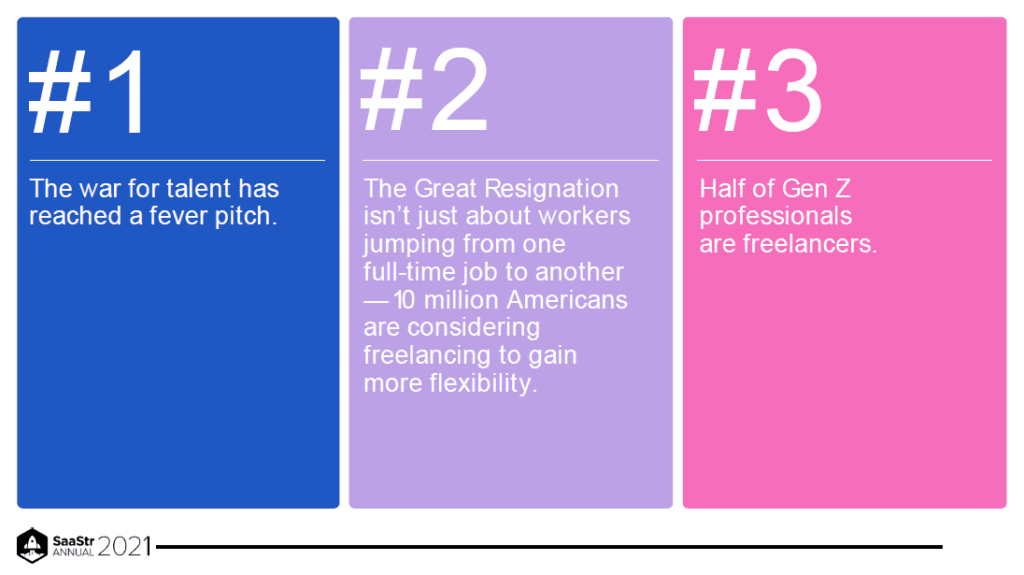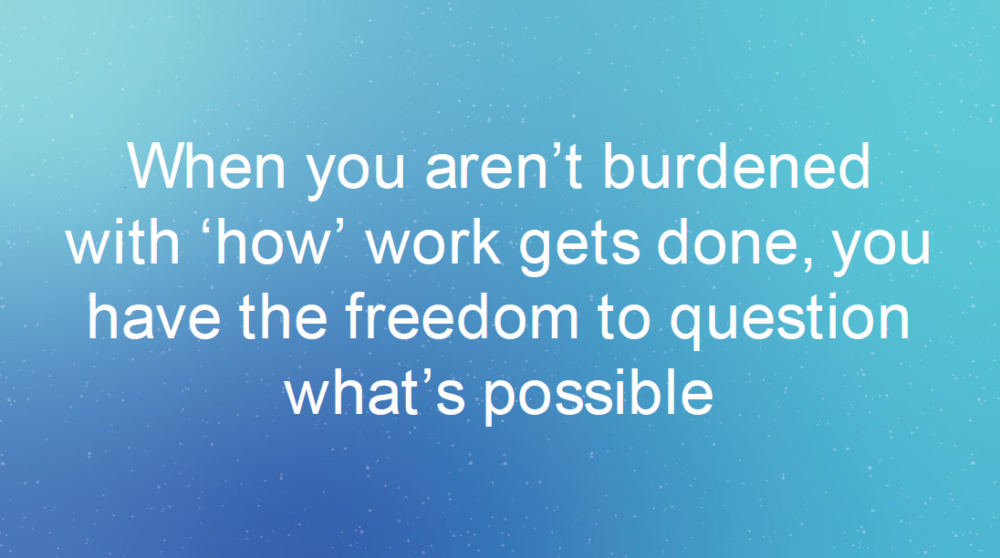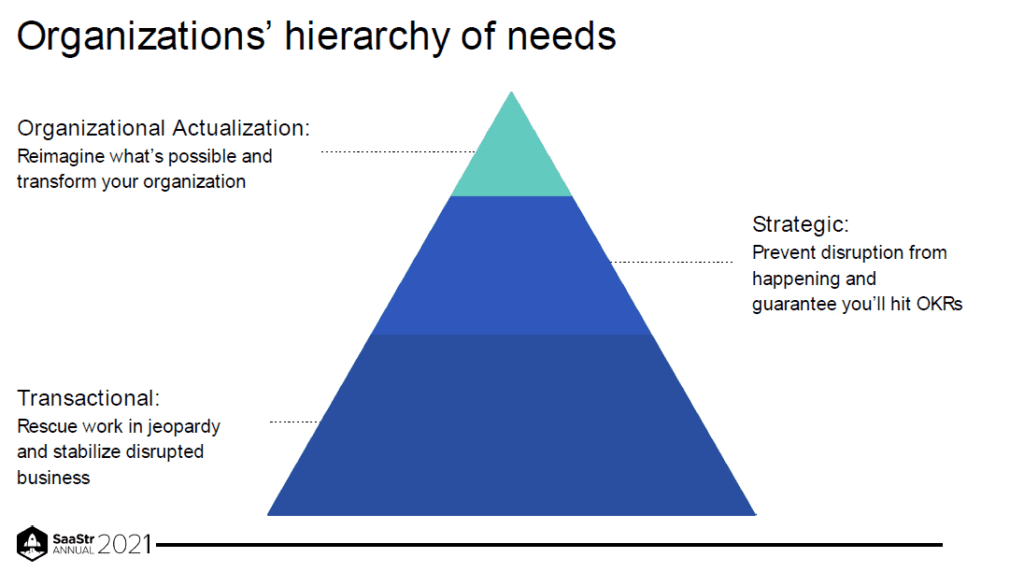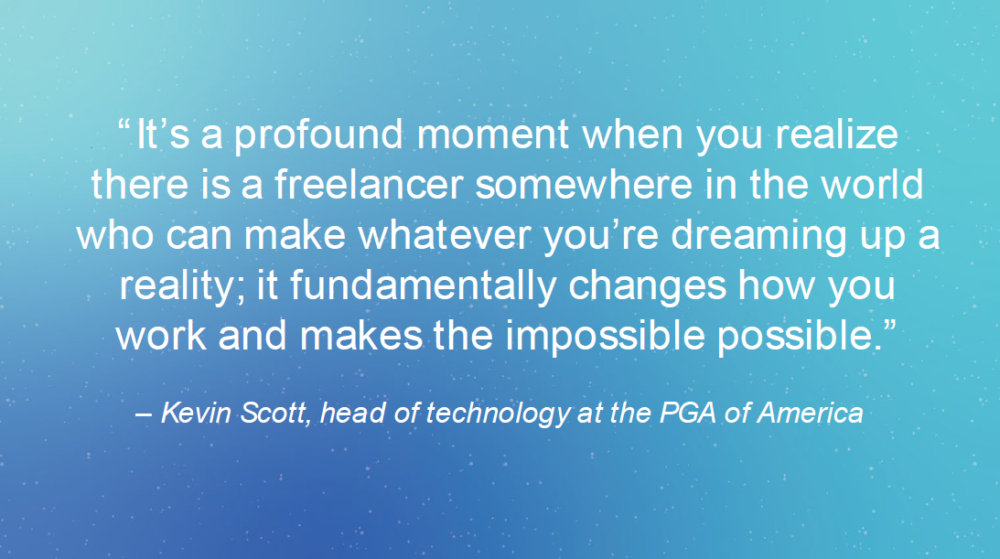At a time when enterprise SaaS is gaining game-changing momentum, it presents a promising opportunity for companies to redefine the rules of work and scale exponentially—by hiring more freelancers.
The pandemic set in motion a massive shift in how workers experience work. With so many professionals now tilting towards the freelance setup, the emerging generation of companies is more deeply rooted in the gig economy.
CEO at UpWork, Hayden Brown, breaks down the tectonic shift in work happening at a lightning pace. She spotlights the role of freelancers in new-age businesses with granular insights into how UpWork scaled through the years relying on its freelance workforce.
Adapting to perpetual change
The last 20 years witnessed the transformational effects of the internet, which spawned many innovative and culture-shifting businesses. Rapidly developing technologies like artificial intelligence, cryptocurrency, and decentralization promise even more disruptive change in the years to come.
As a result, new and old businesses will face an accelerated rate of change. The key to attuning yourself to these fast-pacing changes is building a team capable of constantly adapting.
The way you build a team—one that’s adaptable to trends and changes—will become a huge differentiator for your company.
So, what does it look like when you have to build a constantly changing team?
For the last few years, this conversation was focused on where the work was happening. But the more critical conversation is about who is doing the work.

Who > Where
There are three fundamental reasons why who is more critical than where:
- The competition for acquiring talent is more aggressive than ever, yet it’s a lot more challenging than before.
- The Great Resignation is a permanent state—with millions of workers leaving the full-time workforce and switching to the freelance working style because they need more flexibility and control over the when, where, and who of their work.
- The newer generations in the workforce are looking for fundamentally different things. They don’t want a few long-term employers, but places and people who will empower them to upskill and follow unique paths to craft their careers.
Companies that have actually identified these work trends have shifted their hiring function from talent acquisition to talent access.
This shift signifies a change in mindset from companies feeling they can acquire and own these workers to companies requesting access to these talents.

Talent access in action at UpWork
Freelancers are doing everything at the core of Upwork’s business. Let’s look at how talent access is an optimal way of dealing with talent.
- Ten years ago, UpWork had at least 50-70 freelancers in a globally distributed team. Today, UpWork’s freelance group comprises 75% of its 540-people strong workforce, distributed across 86 countries.
- The company has intentionally designed everything around its people and operations to build a synergistic working relationship between employees and freelancers working in hybrid teams.
- This operational framework that brings together full-time and freelance workers has paid significant dividends for the team in terms of agility, scalability, diversity, and creativity.
Misconceptions hold back many companies from creating a freelance-heavy infrastructure.
These companies are reluctant to work with freelancers because they believe:
- Freelancers aren’t reliable
- Freelancing is not a profession
- Freelancers are only gig workers
- Freelancers can’t contribute to company culture
Brown demystifies these misconceptions and shares her experience at UpWork building a freelance workforce.

Customer Success
The myth that freelancers can’t do highly integrated work within a company is invalid. With a 95% freelancer-led CX team of attuned and geographically distributed professionals, UpWork achieved a 91 customer satisfaction score.
The team also boasts of an attrition rate of as low as <5%—which goes against the idea that freelancers can not be acculturated in your business.
Product
Freelancers can also work in critical roles like product engineering. UpWork has over 350 freelance developers enhancing its core mobile and web apps. This remote freelance team has been one of the biggest driving factors for UpWork’s scaling business.
They’ve tapped into highly-skilled freelance developers with advanced aptitude—outside of Silicon Valley and the USA—to expand their product line.
Marketing
UpWork has had marketing contributors from the freelance community who drive innovation and agility at the company. The team has created 900+ multichannel assets with contributions from a range of freelancers—UX designers, motion designers, writers, project managers, and creative directors.

Five forward-thinking beliefs to create a more equitable workplace for freelancers
It’s not just about having access to more diverse talent, it’s equally about building your dreams and goals to leverage this talent—a new way of thinking about your business to unlock the potential of the freelance economy.
When you aren’t burdened with how work gets done, you have the freedom to question what’s possible.
Once you have unlocked this side, you only have to open your mindset and shape your talent philosophy.
Let’s look at some mindset-shifting beliefs that can help you tap into the freelance community:
- Move from only hiring employees from your region to hiring anyone with the right skills living anywhere in the world.
- Expand your aperture and thought process to onboard your freelancers just like your employees—give them the context and nomenclature about your business to maximize ROI.
- Move away from conducting meetings for everything and commit to the practice of asynchronous work in a distributed setting. Create systems and tools to work with freelancers seamlessly.
- Set standards for virtual and in-person team-building activities to make freelancers feel like they are a part of the community.
- Prioritize inputs and impact over face-time, and focus on the goals and efforts put into achieving the goals. The idea of measuring freelancers’ performance based on the goals they achieve can bring them on equal footing with your employees.
A lot of companies hire freelancers initially to do transactional work. Once it works out well, they move on to more strategic use of their freelance teams—creating an ongoing need for freelancers.
Then they progress to the next level, where they get the realization that there’s a world of talent available to meet their needs at any moment. This is the stage where how and where is no longer a constraint, where companies realize their full potential by opening their doors to the freelance community.

